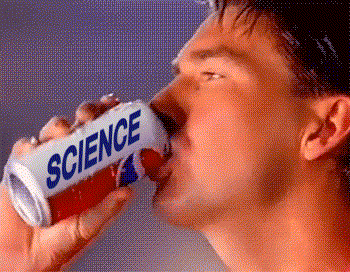“In the best-case scenario, failure really is like a gift. You extract information and you learn things that otherwise you couldn't have.” – Lauren Eskreis-Winkler
BRAIN WAVES
Prove it. Let’s say you have a choice between two deodorants. One has been scientifically proven to mask body odor while the other was scientifically studied. You have a big date coming up: which product do you choose? The answer might seem obvious – give me the proven b.o. blocker! – but consumers tend to overlook the details. In a study, people were shown one of three versions of an ad for a supplement. One ad claimed the product had been “clinically studied,” one said it was “clinically proven,” and another didn’t include any reference at all. After seeing the ads, people were asked to recall the claim from the ad.
Regardless of the ad, people were more likely to remember the claim as containing the word “proven” than “studied.” In other words, many of them misremembered what they’d seen and seemed to assume the product had proven benefits. “When people see or hear scientific claims made in vague terms, they later misremember them in more definitive terms,” said lead author Alan Castel. He advised consumers to “take time, pay attention and don’t make decisions too quickly.”Awe-inspired. Awe is, well, awesome. Lisa Sideris, a professor of environmental studies at the University of California, Santa Barbara, argues that there are different ways of experiencing awe. She makes the distinction between short-term awe (that fleeting “wow!” feeling you get when you see a beautiful landscape, for instance) and dispositional awe – a lasting sense of awe that changes the way you see the world. Sideris says that while short-term wonder “moves impatiently from one object to the next,” dispositional awe is the lifelong pursuit of wonder and curiosity. “Dispositional awe, moreover, is associated with an increased understanding of the nature of science,” she writes, “where the ability to accommodate novel findings, and to revise or reject old beliefs, is critical.” So how do you turn awe into a lasting pursuit? Glad you asked.
Indulge Me. Think about the last time you resisted watching yet another episode of your favorite TV show (Schitt’s Creek reruns, anyone?), or decided not to have a second piece of cake. In many societies, self-discipline is seen as an invaluable trait. But there’s a case for the occasional indulgence, too. So how do you find the right balance between both? Listen to learn more.
ON THE HIDDEN BRAIN PODCAST
Learning From Your Mistakes: No matter who you are, it's guaranteed that at some point in life, you'll make a mistake. Many of us find failures to be uncomfortable, so we try our best to ignore them and move on. But what if there was a way to turn that discomfort into an opportunity? This week, we begin a two-part mini-series on the psychology of failure and feedback. Psychologist Lauren Eskreis-Winkler teaches us how to stop ignoring our mistakes, and instead, start to learn from them.
ON THE MY UNSUNG HERO PODCAST
Eranda Jayawickreme story: This week on My Unsung Hero: Eranda Jayawickreme was nervous on his first overseas trip by himself, until a fellow passenger went the extra mile to help him.
Don’t forget to send us the story of your unsung hero! Record a voice memo on your phone and email it to myunsunghero@hiddenbrain.org.
ON HIDDEN BRAIN+
The First Few Seconds: Elite athletes learn a lot by watching videos of themselves performing. This allows them to step outside themselves and critique their own performances objectively. Now, researchers are asking whether this strategy can be applied to other situations — including those with high stakes. In the latest episode of Hidden Brain+, psychologist Jennifer Eberhardt brings this insight to bear on policing in America.
Interested in trying Hidden Brain+? Find it by searching for Hidden Brain in the Apple Podcasts app, or click here.
FROM OUR LISTENERS
MIND GAMES
I am your mother's brother's only brother-in-law. Who am I?
LAST WEEK’S PUZZLE
What is always coming but never arrives?
The answer: tomorrow
*A note about last week’s puzzle: We asked you which number does not belong in the following series: 99, 81, 9, or 16. The answer we gave? 99, as the rest are square numbers. As some of you pointed out, there are multiple correct answers to this puzzle. For example – 16 is the only number not divisible by 9. As this week’s episode has taught us, it’s important to acknowledge our mistakes. We stand corrected.
A MOMENT OF JOY
Have an idea for Hidden Brain? A story you want to share with us? Send an email to ideas@hiddenbrain.org. Listen to us on Spotify, Apple, Amazon Music or your favorite podcast platform.





